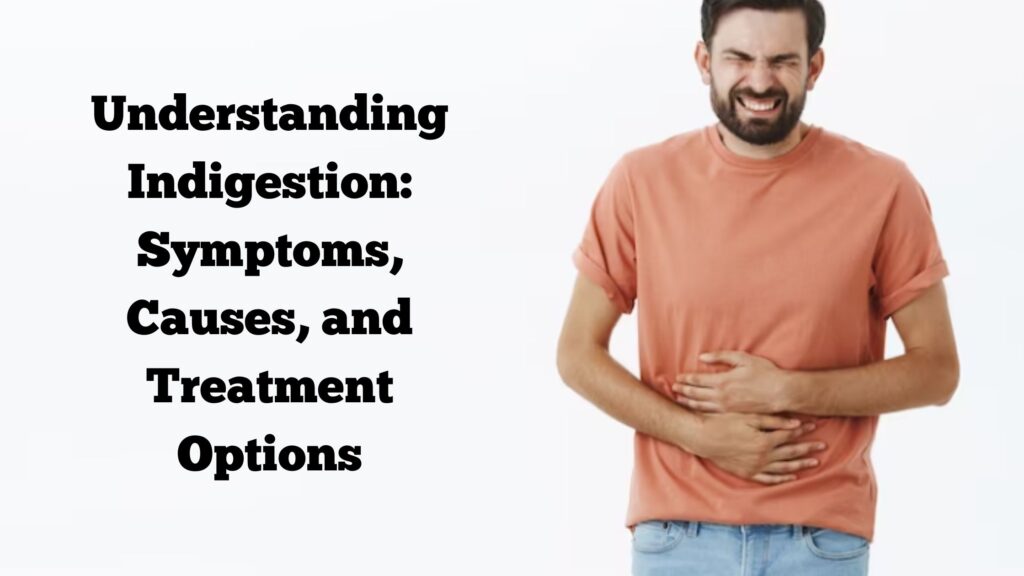Indigestion is a common ailment that affects many people worldwide. It is a broad term that encompasses various digestive disorders, including bloating, gas, and heartburn. It can be caused by several factors, including dietary habits, stress, and medical conditions. Indigestion is usually not a cause for concern, and most people can manage their symptoms with simple lifestyle changes and over-the-counter medications. In this blog post, we will discuss the symptoms, causes, and treatment options for indigestion.
Symptoms of Indigestion:
The most common symptoms of indigestion are a feeling of fullness, bloating, and discomfort in the upper abdomen. Other symptoms may include:
- Nausea
- Vomiting
- Belching
- Acidic taste in the mouth
- Heartburn
- Difficulty swallowing
- Diarrhea
- Constipation
- Flatulence
If you experience any of these symptoms, it is essential to seek medical advice to determine the underlying cause of your indigestion.
Causes of Indigestion:
Indigestion can be caused by various factors, including dietary habits, stress, and medical conditions.
1. Dietary Habits:

Certain foods can trigger indigestion, including fatty, spicy, or greasy foods, chocolate, caffeine, and alcohol. Eating too much or too quickly can also lead to indigestion.
2. Stress:
Stress can cause indigestion by affecting the digestive system’s function. Stress can lead to overeating, which can cause bloating and discomfort in the stomach.
3. Medical Conditions:
Several medical conditions can cause indigestion, including gastroesophageal reflux disease (GERD), peptic ulcers, gallstones, and inflammation of the stomach lining.
Treatment Options for Indigestion:
The treatment options for indigestion depend on the underlying cause of the condition
Lifestyle Changes:
Making simple lifestyle changes can help alleviate indigestion symptoms. These changes include eating smaller, more frequent meals, avoiding trigger foods, quitting smoking, reducing alcohol consumption, and managing stress levels.
Prescription Medications:
If lifestyle changes and over-the-counter medications do not alleviate indigestion symptoms, your doctor may prescribe prescription medications. These medications include prokinetic agents, which help the stomach empty more quickly, and antibiotics, which can treat bacterial infections in the stoma
Surgery:
In rare cases, surgery may be required to treat indigestion. Surgery is usually reserved for cases of severe GERD or a hiatus hernia, where the stomach pushes through the diaphragm and into the chest.
Prevention of Indigestion:
There are several steps you can take to prevent indigestion:
- Eat smaller, more frequent meals.
- Avoid trigger foods.
- Quit smoking.
- Reduce alcohol consumption.
- Manage stress levels.
- Maintain a healthy weight.
Conclusion:
Indigestion is a common digestive disorder that can be caused by various factors. While it is usually not a cause for concern, it can be uncomfortable and disruptive to your daily life. Simple lifestyle changes and over-the-counter medications can help alleviate symptoms. If symptoms persist, seek medical advice to determine the underlying cause of your indigestion. By making simple lifestyle changes, you can prevent indigestion and enjoy a healthy digestive system.

